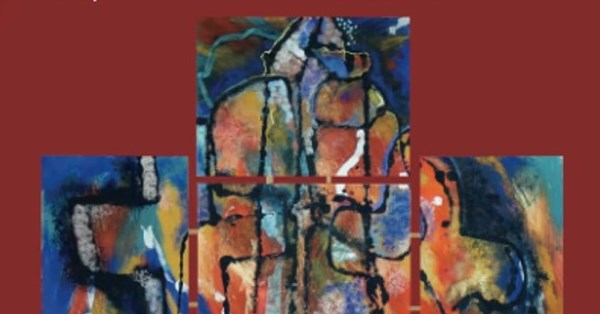IT IS wonderful to be given a photo album on retirement, and high praise indeed to receive 18 essays written in your honour. This collection, commissioned from colleagues, consultants, and friends, pays tribute to the Revd Elizabeth Baxter, executive director, until last May of the Centre for Health and Pastoral Care at Holy Rood House, Thirsk. Offering retreats for anyone in need of emotional, psychological, or spiritual healing, this opened in 1993 under the watchful eyes of Elizabeth and her husband Stanley (d. 2016). The associated Centre for the Study of Theology and Health was established seven years later.
Wendy Wilby recalls the fervour and flavour of Elizabeth Baxter’s contribution to the Movement for the Ordination of Women, which gave birth to radically new ways of worship, liturgy, and prayer, encapsulated here in hymns and poetry by June Boyce Tillman. Both attribute Baxter’s influence to her passion for justice and love of “God talk”, but Jenny Kartepulis describes the healing fruits of the strongly inclusive, caring ethos of Holy Rood House, where, however broken, every guest matters.
For Nicola Slee, this is demonstrated in Baxter’s leadership of engaging worship, which uses language that corrects the wounding patriarchal bias of tradition and emphasises the incarnational and dynamic nature of faith. Elizabeth’s son, Jonathan, highlights the “more than human” dimension of the theology of Holy Rood House, that sees alienation and injustice as symptoms of the global ecological crisis threatening the harmony of creation.
An “Interlude” of creative writing, inspired by time spent in residence, moves the collection on to the scriptural examination by the editor, Helen Leathard, of radical apostolic women, sent by God to aid human flourishing. Seeing Baxter in this vein, she sets the scene for Jane Craske’s advocacy of “Story telling whilst Walking”, which draws out the value of listening and enabling hidden pain to surface and begin to be healed. Christina Beardsley expresses the continuing frustrations voiced by those who have engaged in recent conversations about Living in Love and Faith. She laments the lack of courage that deprives the LGBTI+ community of blessings enjoyed by those whose gender and sexuality is deemed normative.
Reflecting on the “little that becomes enough”, David Gee likens the tension between seeking care, and leaving it, to the “trembling and bewilderment” experienced by the disciples facing the uncertainty of life after the resurrection. He sees this as key to the character of Christian hope, which may well falter when challenged by adversity, but becomes more resilient when cultivated by habit and spiritually healthy corporate support.
David Jasper, observing the toxicity of churches that lead some to despair rather than hope, calls for greater Christian integrity and commitment to learning about what promotes human flourishing. For Elaine Wisdom, this includes noticing the importance that Holy Rood House places on relaxed engagement with the arts, as well as the comforts of good food, warmth, and a peaceful garden setting. Jan Berry remembers Zoom meetings as a poor substitute for that type of embodied care, but commends online connectivity as a means of keeping in touch with those who might otherwise remain isolated.
Essays by David Macdonald, Andrew de Smet, David Ibrahim, and Christopher Cook focus on the points where psychology, spirituality, and mental health intersect with the healing process cultivated by Holy Rood House. Tilting towards the classroom rather than the confidential world of private counselling, they are complemented by a final essay by Baxter’s brother, Paul Avis, who commends a deep approach to pastoral care, which is attentive to both subconscious and conscious thinking and a timely reminder, of the shadow side of church life.
In line with scriptural precedent, the first essay, by John Pritchard, deserves the last mention for his overview of where Holy Rood House stands in relation to the problematic issues facing the Church today. We must pray, as he concludes, for a more diverse, humbler, and more creative future — haunted by hope.
The Revd Penny Seabrook is a retired priest in south-west London.
Theology and Human Flourishing: Essays in honour of Elizabeth Baxter
Helen Leathard, editor
Sacristy Press £19.99
(978-1-78959-364-8)
Church Times Bookshop £17.99

















